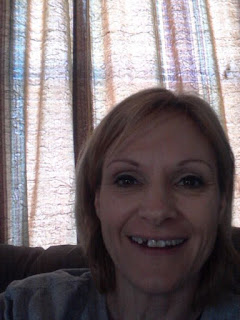‘It is completely treatable’ - Martha's Vineyard Times

At Francine Sohn's home in Edgartown on Thursday, a small group gathered for The Support Ukrainian Newborns (SUN) Project's fundraiser, which brings "vital medical equipment to providers in Ukraine to help save newborns." In particular, the fundraiser was being done in response to a plea from T.K. Znamenskaya, president of the Ukrainian Neonatology Association, for 60 bili-huts and 60 bili-rulers, both of which are medical devices used for the treatment of jaundice in babies. The bili-hut (invented by Donna Brezinski) is a small, portable blue-light phototherapy device for jaundice, while bili-rulers (invented by Ann C.C. Lee) are used to detect the condition.
"Thank you all for coming and giving up a beautiful beach day afternoon," Sohn, one of the fundraiser organizers, said to kick off the event.
"The Island community really pulled together," Linda Jeng, a fellow organizer, said.
Jeng continued by talking about how patients in non-clinical settings, such as war-torn Ukraine, have a need for medical services, although they may need to come in different forms.
"Women are still giving birth because the life cycle continues and whether they want to give birth in a conflict zone or not is not their choice, but they still need medical help," Jeng said. She added that factors preventing Ukrainian hospitals from efficiently giving treatment include destroyed infrastructure, the monthly $5 billion deficit the country is running to defend itself from Russia, and its shrinking economy. The World Bank estimates that Ukraine's economy will contract by 45% this year.
The recognition that medical devices need to be portable and usable in non-clinical settings led to items like the bili-hut and bili-ruler. Organizations like Brigham and Women's Hospital's Global AIM Lab and Little Sparrow Technologies are working to get these devices to where they are needed.
"In a general sense, the mission is to try to save babies. Especially in rural, low-access areas where medical care and medical supplies are really limited," Ingrid Olsen, project manager at Global AIM Lab, said. "Of the children that are dying, 40% of those are during the neonatal period. So, right off the bat, within those first few weeks of life, that's when the most amount of deaths are happening in young children around the world."
Babies with jaundice born in countries with proper medical equipment can be treated very easily. According to Olsen, a 10th of newborn babies develop jaundice and the ones born in areas without the right equipment can lead to brain damage or even death. This is the situation in Ukraine, where mothers cannot get screened for jaundice in their children. However, the bili-ruler is a skin color matcher, allowing people to know if someone has jaundice.
Brezinski, CEO of Little Sparrow Technologies, told the audience the bili-hut was developed out of necessity. While she worked as a bedside clinician in 2009, a set of twins developed jaundice and she had to "scramble" to get medical devices so the mother, who was recovering from a C-section, would not have to be separated from one or both of the babies for treatment.
"It was not an easy thing to do. That's when I discovered this stuff is fragile, expensive, and hard to come by," Brezinski said. "If it's that way in Massachusetts, what is it in Addis Ababa (Ethiopia)? What is it in [Burundi]? What is it in [Peru]? It's impossible, that's what it is."
Brezinski may not be an engineer, but she can sew. She got to making the bili-hut prototype. A device that was soft, portable, durable, and blue-light-emitting was made. Brezinski said the device works somewhat like a tanning bed to "bend the light" and cover all of the baby's jaundice-afflicted skin. After the working model was made, Brezinski applied for and received grants from the Bill and Melinda Gates Foundation.
"We spent a lot of time traveling around the world seeing how moms and babies were being taken care of in different care environments," Brezinski said. "We wanted something that could be set up literally anywhere and be able to be robust there, meaning even for places that didn't have HVAC and the cleanest environments the device could do what it needed to do."
The bili-hut first saw baby-saving action in a rural Burundian hospital.
"They were getting better, and they were getting better in like a day as opposed to five days," Brezinski said. "And it was running on a car battery. They had no electricity."
Brezinski said the bili-hut and bili-rulers could be used by virtually anyone regardless of language or experience, which was important when getting the devices to hospitals in need. For example, the instructions are in English but the images make it so a French-speaking Burundian doctor can use it. Some of these devices have already reached Ukraine, which is why the request for more came from Znamenskaya. Brezinski said there are around 31,000 babies born in Ukraine per month.
The cost of delivering a bili-hut to Ukraine is $3,000, according to Brezinski.
"It's completely treatable. You just have to get the treatment there and get it used in time," Brezinski said. "That's why you need portable technologies, particularly in situations now like in a conflict or war zone."
A raffle for gift cards totaling $500 was also held for those who donated at least $200. Several Island businesses, such as Al's Package Store and Edgartown Meat and Fish Market, contributed to the raffle. Olsen told The Times that $1,200 were raised during the fundraiser, but more is on the way since some people were unable to get a signal on their phones during the event.
For more information about the campaign, visit https://globalaim.bwh.harvard.edu/projectsun/. To donate to The SUN Project's efforts, visit https://bit.ly/3S8El85.

Comments
Post a Comment